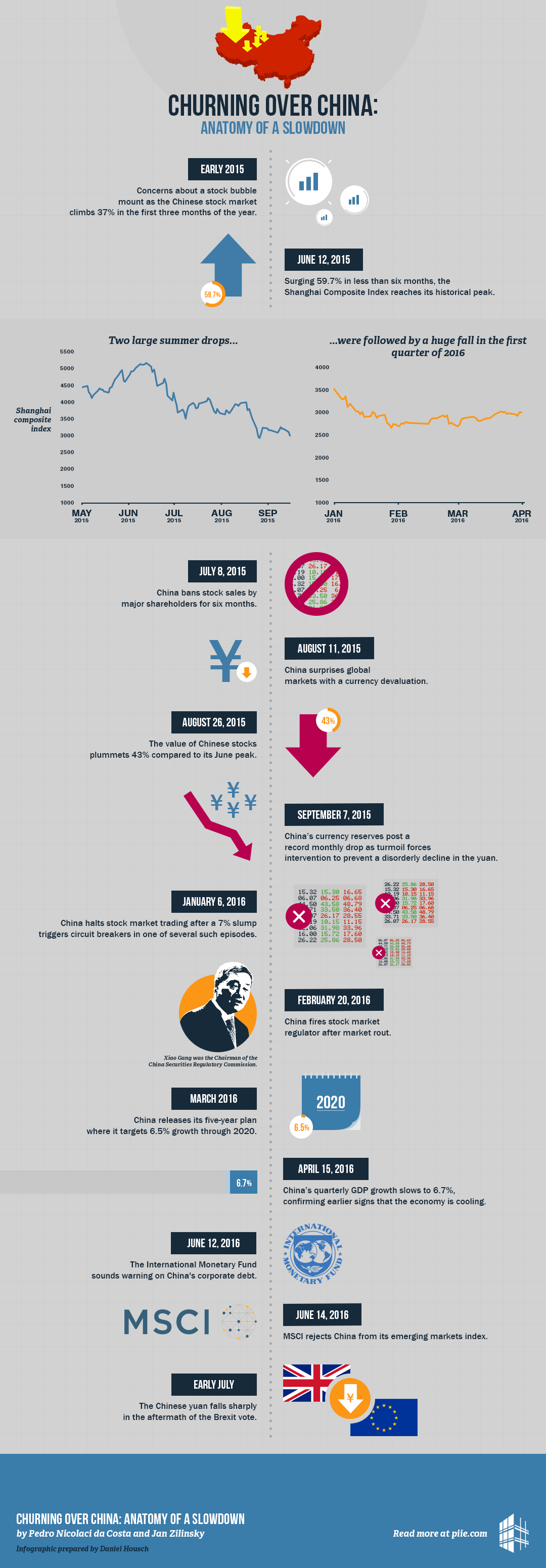China’s economic opaqueness, including doubts about the veracity of official figures, is one the biggest blind spots for policymakers and businesses around the world trying to plan for a highly unpredictable future.
It's a little like trying to pilot a giant aircraft while a key gauge on the dashboard looks jammed.
This has brought increasing attention to the pronouncements of China’s economic authorities, as well as the performance of its once-isolated stock market.
The following timeline of developments since last summer’s equity market crash should be a handy tool for those trying to figure out what’s next. Is the economy stable, despite the slowdown in growth to its weakest levels in a quarter century, or is there further to fall? Will the country’s corporate debt create trouble for the banking system? Does a weaker economy mean recent momentum toward market reforms, including currency liberalization, is waning?
Turbulent Year
Early 2015 – Concerns about a stock bubble mount as the Chinese stock market climbs 37 percent in the first three months of the year.
June 12, 2015 – Surging 59.7 percent in less than six months, the Shanghai Composite Index reaches its historical peak.
July 8, 2015 – China bans stock sales by major shareholders for six months.
August 11, 2015 – China surprises global markets with a currency devaluation.
August 26, 2015 – The value of Chinese stocks plummets 43 percent compared to its June peak.
September 7, 2015 – China’s currency reserves post a record monthly drop as turmoil forces intervention to prevent a disorderly decline in the yuan.
January 6, 2016 – China halts stock market trading after a 7 percent slump triggers circuit breakers in one of several such episodes.
February 20, 2016 – China fires stock market regulator after market rout.
March 2016 –China releases its five-year plan, targeting 6.5 percent growth through 2020.
April 15, 2016 – China’s quarterly GDP growth slows to 6.7 percent, confirming earlier signs that the economy is cooling.
June 12, 2016 – The International Monetary Fund sounds warning on China's corporate debt.
June 14, 2016 – MSCI rejects China from its emerging markets index.
Early July – The Chinese yuan falls sharply in the aftermath of the Brexit vote.



